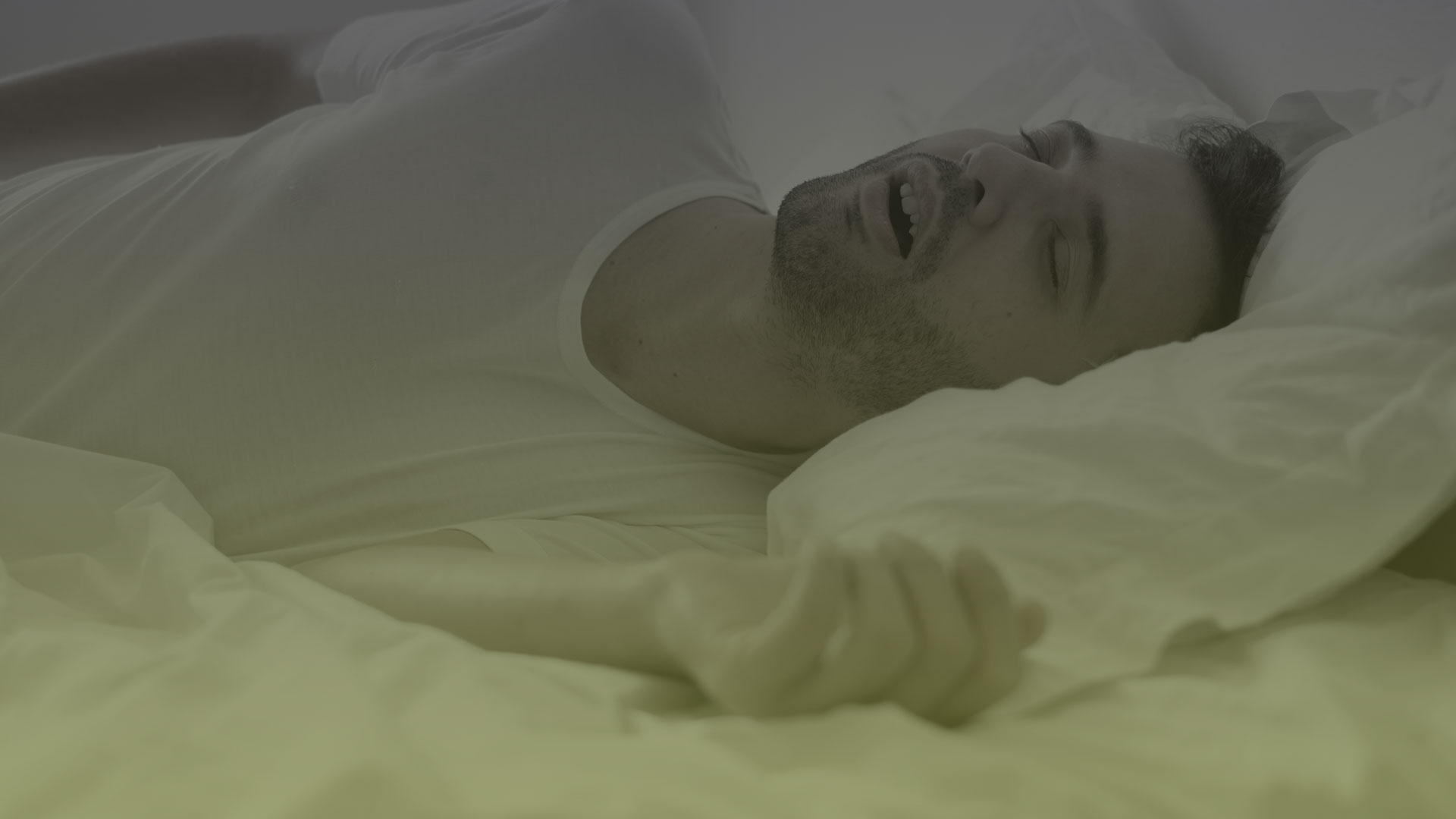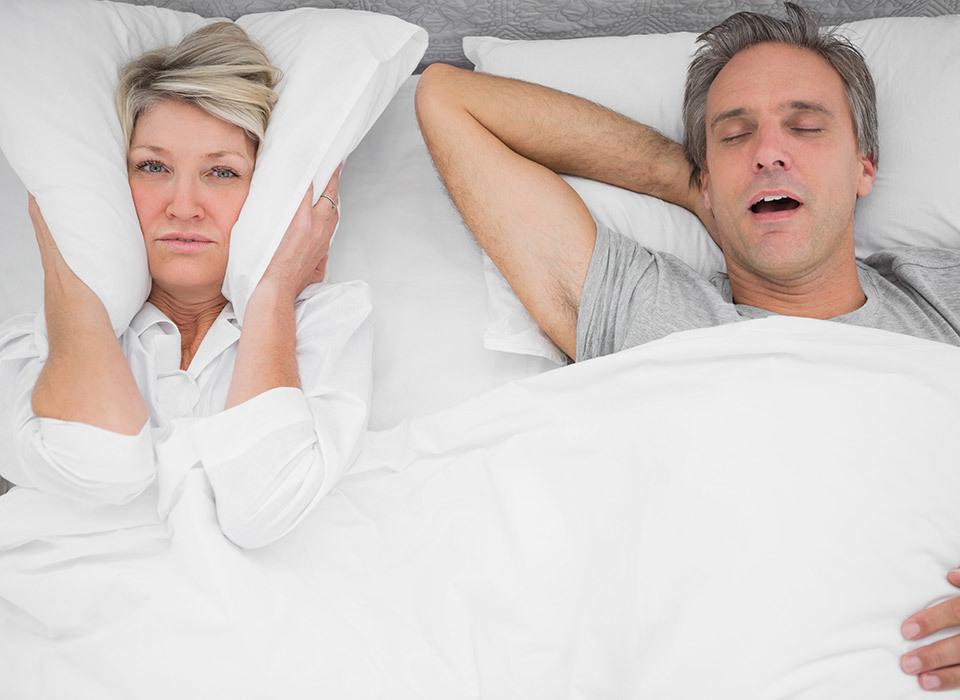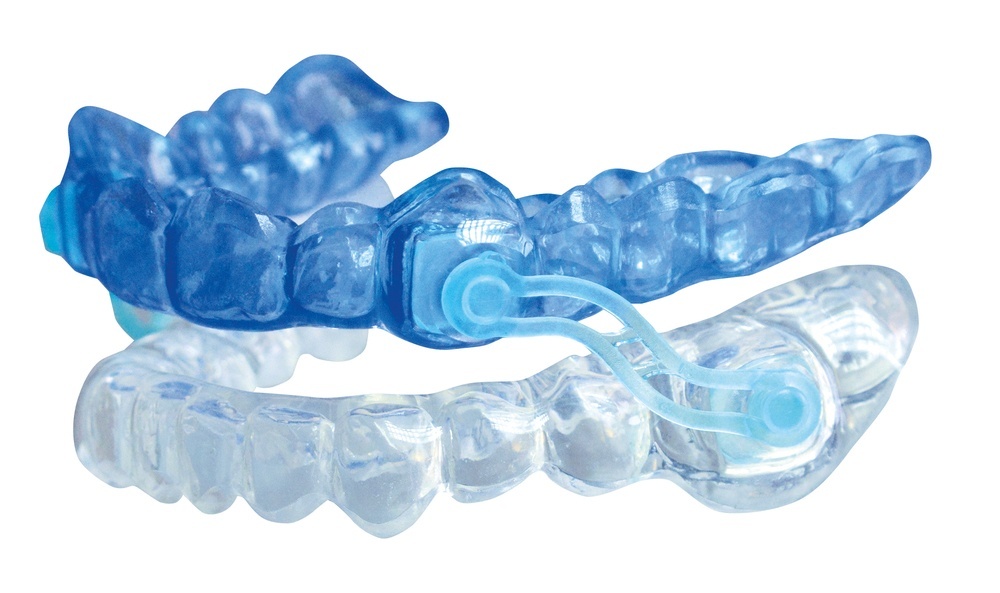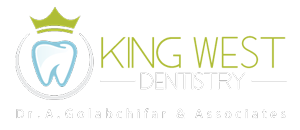
What is sleep apnea?
Sleep apnea disruptions in breathing can occur for several seconds to a few minutes while sleeping. It can occur a maximum of 30 times an hour. Pauses in breathing affect the levels of oxygen and carbon dioxide in the body. Your brain notices this imbalance and sends an alarm to your body to wake up and breathe normally. That's why patients with sleep apnea grasp for air during the night trying to wake up. The patient may not notice this when sleeping and most often, it's their partner who will notice symptoms like snoring or choking sounds. Sleep apnea is potentially life-threatening and needs to be treated as soon as it's diagnosed.
The 2 main types of sleep apnea
Central sleep apnea
This type of sleep apnea occurs if there is a dysfunction in the brain. It happens because the brain doesn't supply breathing muscles with the proper signals.
Obstructive sleep apnea
This is the most common form of sleep apnea. It occurs when there is something in the body that is blocking proper airflow to the nose and/or mouth. At our dental clinic, we help individuals suffering from obstructive sleep apnea by recommending the right appliances.
Common symptoms of sleep apnea include:
- Heavy snoring
- Feeling of fatigue and sleepiness during the day
- Insomnia
- Severe headaches in the mornings when you wake up

Why do you need to treat sleep apnea?
Sleep apnea is a potentially dangerous condition that needs to be treated. The danger lies in the fact that breathing may stop completely because of an obstruction that is present in the throat or neck tissues. As you sleep, the tongue falls back into the throat which blocks the airways further. This prevents the lungs from getting adequate oxygen which you need to continue breathing.
When the lungs lack enough oxygen, the heat, abdomen, and diaphragm all attempt to force the body to breathe. These muscles expand and try to get more oxygen. These changes make the situation worse as the airways are blocked even further.
As this is going on, the patient's level of carbon dioxide in the blood increases and the oxygen levels begin to drop. The heart works extra trying to supply the body with enough blood to make up for the dropping oxygen levels. That's why it's often said that individuals with sleep apnea experience periods of ''death'' during their sleep. The heart is in constant strain and when this occurs every night, it could lead to serious heart conditions.
Do you suspect that you or a loved one could be having sleep apnea? It's important to consult your dentist who will perform a further evaluation to diagnose the condition and offer suitable treatment.
Why do you need to treat sleep apnea?
There are various ways to treat sleep apnea. First, you'll need to see the right medical specialist and get officially diagnosed. Your sleep doctor and your dentist will then work, hand in hand, to map a suitable course of treatment for you. The treatment chosen will depend on the patient's health as well as the severity of their condition. A good dentist will go over several treatment options with you.
Often, you can avoid sleep apnea by making simple lifestyle changes. When you visit our dental clinic, our dentist may advise you to avoid smoking or using tranquilizers or taking alcohol because these habits could make the sleep apnea worse.
Traditionally, doctors would recommend sleep masks as a suitable treatment for sleep apnea. These masks are designed to keep the patient's airways open as they sleep. Dentists recommend the use of specialized devices to keep the lower jaw in a forward position and prevent the tongue from blocking air flow to the lungs. This is an ideal option for patients looking for a simpler and nonsurgical treatment for sleep apnea.

Dental devices to treat sleep apnea
There are several dental devices that can be recommended to treat obstructive sleep apnea. These dental appliances work in such a way that they reposition the jaws forward and open the patient's airway to allow adequate flow of oxygen when the patient sleeps. These dental devices can help alleviate symptoms like loud snoring and fatigue because the patient will be able to sleep comfortably throughout the night. There are two different types of sleep apnea devices, adjustable and fixed, your dentist can help you choose an option that best suits your needs.
